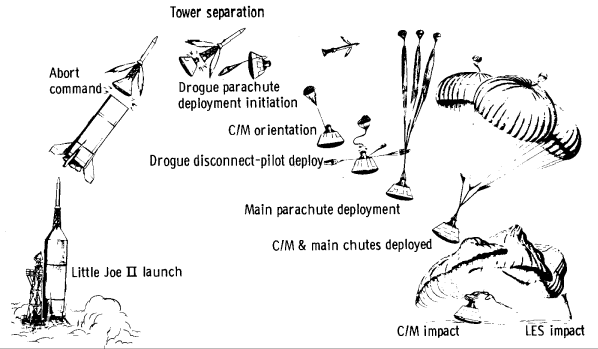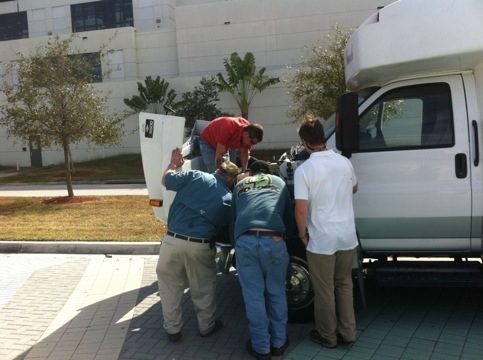
It’s Time to begin Planning for the New Year
2020 has finally passed and with a Covid-19 vaccine on the horizon we can finally begin to look past the latest school closings, and hospital surges. While masks and social distancing will be with us for a while, a new year opens up new opportunities for something new. Do you think I’m ready for something new (absolutely!)
God in His grace gives us newness; new days are given after a night’s rest, new growth is seen as the seasons of the year change, and a new year is given to be used for His glory. Honestly, this has not been the best year for me, and I know it has been really hard for many people. If you have not had a good year, or if you seem to be reacting to life instead of moving the rudder of your life’s ship, then consider the following as you approach the new year:
__________________
Six Items To Consider As You Prepare For a New Year
1. Pray. It seems obvious, but God already has your year mapped out, so why not see what he says about your next year. Are there things that you find yourself foolishly repeating year after year simply because you didn’t spend time with the Lord? Before we begin to plan our next steps, we must consult the Lord and His plans for us.
Jeremiah 29:11-13 “For I know the plans I have for you, declares the Lord, plans for welfare2 and not for evil, to give you a future and a hope. Then you will call upon me and come and pray to me, and I will hear you. You will seek me and find me, when you seek me with all your heart.”
2. Develop Your Calendar. It has been said, “If you don’t control your calendar, then your calendar will control you.” As you chart your next season of life, begin by taking your yearly calendar and adding all of the big annual events (vacations, ministry events, family events like anniversaries and birthdays, and conferences). While Covid-19 may have changed how we do these things, we must think creatively, with purpose and understanding, to see that the intention behind these “big rocks” have the space needed in our lives.
Once you have yearly events, then move to monthly, and then weekly. But before you add all the events from last year to the calendar for this year, you must prayerfully consider each one. How will you evaluate if you need to do this or that event again, on the same scale, or the same way? While I pray that life is not about quarantines and closings this coming year, we still need to carve out the weekly and monthly items that are important.
Make sure you put as much information as you know on the calendar. There will be events that you do not have a specific date for yet, but try to place it as close to the date of where you think it will be held. By having all your events on the calendar before you, you can also evaluate if there will be simply too much going on, or if more things can be added to the calendar. Perhaps, an alternative is to move events around until you find the balance between the two.
3. Along with your events, simultaneously, develop your budget. How much will you need for specific events, trips, or ministry efforts? You may find that you need to scale down an activity or that you have the ability to do something else or to do the event on a larger scale than you once thought possible. Like air in a clown’s balloon, you can twist all the links into it you want, but there is only so much air and the balloon can only stretch so far.
4. Consider your own personal goals and need for growth. If you are finding yourself feeling “burned out” spend some time asking the Lord, “Why am I feeling this way?” or “What am I doing regularly that is negatively impacting my life?”
It may be that you are spending too much time away from home, or not enough in devotional time. It will be different for everyone, but now is the time to plan out how you will not continue to do these same things. You don’t have to feel tired, depressed, worn out, etc. all the time.
This is also a great time to consider the needs of your family. Just as the seasons change, so do the needs of family. Each year brings its’ own set of problems and challenges, and so as you prayerfully plan your budget, calendar out events, and set your personal goals, also consider how your family has changed in the past year. Avoid excessive activity, and build in family time, or special time with a child that may need some extra attention. Your first responsibility is to your family, and then to ministry.[1]
____________________
New Year’s Resolutions
For a person to keep a New Years’ resolution it has to be rooted in the person having a genuine need and the person seeing the benefit of keeping the resolution. Your praying, planning, budgeting will bring needed resolutions to your attention that if you make these changes will help you to be healthier, happier, more rested, and growing as a person.
____________________
 5. Review the previous year. I keep a journal where I record detailed notes of meetings, planning lists, journal entries, ideas etc. and I when I go through this time of planning, I review these journals from the previous year. I am reminded of ideas that I had forgotten about, people I need to develop relationships with, projects that have been completed (or not completed), or even goals that have been met.
5. Review the previous year. I keep a journal where I record detailed notes of meetings, planning lists, journal entries, ideas etc. and I when I go through this time of planning, I review these journals from the previous year. I am reminded of ideas that I had forgotten about, people I need to develop relationships with, projects that have been completed (or not completed), or even goals that have been met.
These journals are encouraging because I am able to see how God has answered prayer, provided what was needed to complete various ministry projects, and carried me through one more year of ministry. They are a reminder of God’s faithfulness.
Unlike a previous year’s calendar, a journal reminds me of thoughts and feelings. There are some items and information that I will transfer from an older journal to a new one, but for the most part each journal is a step forward into a new year.
Regardless of your method, how will you review the previous year? Do we just say it is a “one off,” and treat 2021 like 2019 and pretend 2020 really didn’t happen?
6. Contentment but not Satisfaction. This is not about “we had 20 last year, so this year I want to have 40.” Or “we had 6 groups last year, so this year I want to have 12!” Wanting more people, money or equipment simply because that’s how the world measures success is not a good way of determining a direction in ministry. This method is rooted in pride and will be quickly abandoned when things get difficult.
Before Covid-19 many church leaders measured success by how many backsides were in the pew, and how many dollars were in the plate. Now we are talking about virtual services and giving online. Covid-19 has taught us new ways of measuring success, such as “engagement,” and “relationship building.” But, this is really as it has always been since the time of the early church, we just needed a pandemic to bring us back into focus.
Let me be of encouragement to you, that God loves you, has a purpose and plan for your life and this coming year is going to be a year of recovery and re-building. As we all are beginning to come out of our post-apocalyptic bunkers, know that God will reward our faithfulness to Him.
_________________
[1] 1 Timothy 3:4
 This past Tuesday evening was a Cub Scout meeting. As the leader of my son’s age group we were continuing to go through first aid requirements for a rank advancement. We had to move a couple of times because the church where we meet is having some construction, but eventually we settled in the front of the church sitting on the grass. That evening we had a couple of new scouts that were supposed to be in the older group (they had met off campus that evening and they did not get the word so they sat in with us). So with new faces and beginning a little behind our normal schedule I started to work through my presentation.
This past Tuesday evening was a Cub Scout meeting. As the leader of my son’s age group we were continuing to go through first aid requirements for a rank advancement. We had to move a couple of times because the church where we meet is having some construction, but eventually we settled in the front of the church sitting on the grass. That evening we had a couple of new scouts that were supposed to be in the older group (they had met off campus that evening and they did not get the word so they sat in with us). So with new faces and beginning a little behind our normal schedule I started to work through my presentation.





